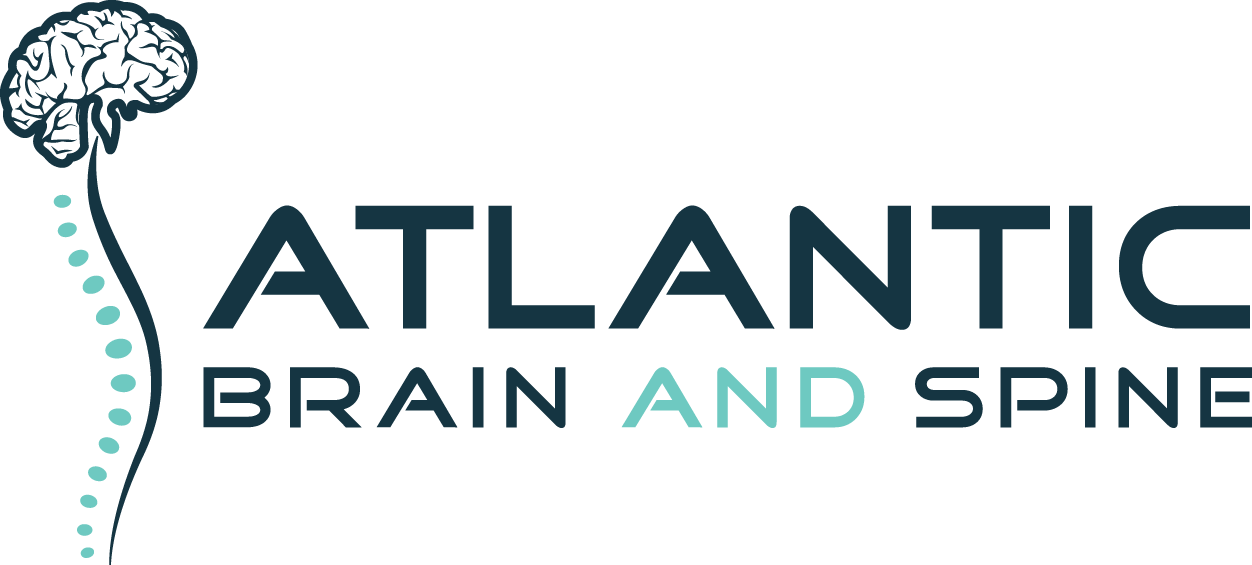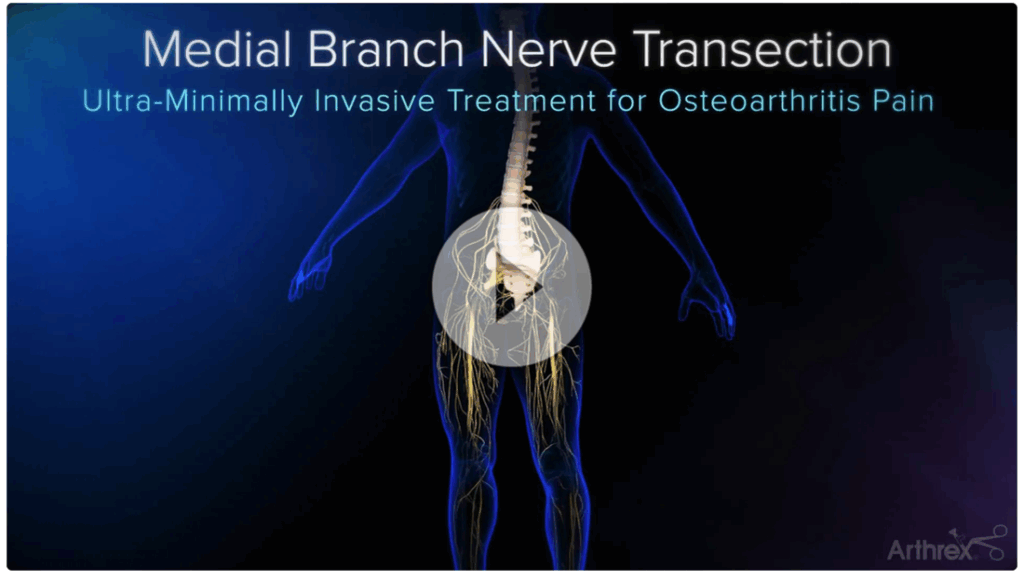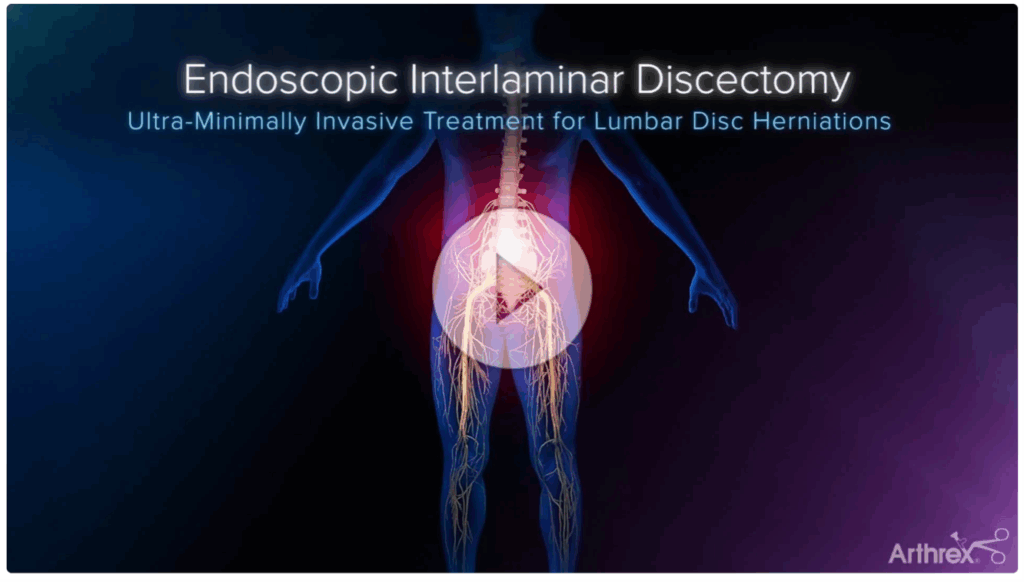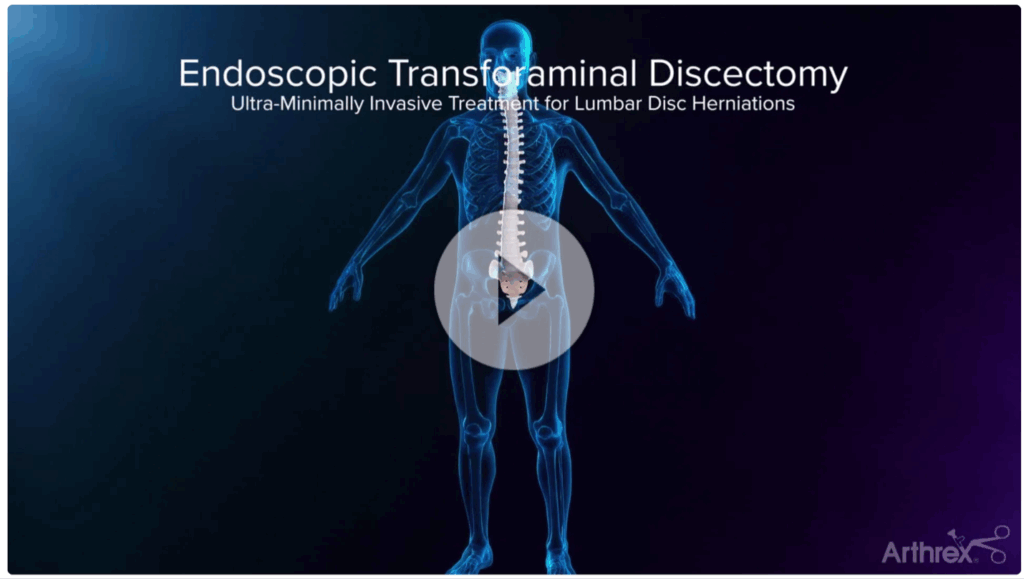
Endoscopic Spine Surgery is at Atlantic Brain and Spine!

Ultra-minimally invasive treatment options designed to restore function, preserve motion, minimize pain, and get you back to the life you love.
Around 80% of adults will deal with back pain at some point in their lives. The spine is a highly complex part of the body, essential for movement and stability. If it’s injured or affected by a condition, it can disrupt its normal function, leading to symptoms such as pain, numbness, weakness, muscle stiffness, and other issues.
What is Endoscopic Spine Surgery?
Endoscopic spine surgery is a minimally invasive procedure carried out by either a spine surgeon with or a neurosurgeon.
Specially designed instruments like the endoscope, which is about the width of a pencil tip, allow surgeons to view and reach small areas of the spine without the need for the large incision required for traditional back surgery.1

Benefits of Endoscopic Spine Surgery.1
- Faster recovery and return to normal activity
- Fewer postoperative complications and infections and less postoperative pain
- Shown to require fewer or no narcotic pain medications
- Smaller incisions help prevent damage to major muscles in the back
Explore the Ultra-Minimally Invasive Treatment Options for your pain:
Medial Branch Nerve Transection
Ultra-Minimally Invasive Treatment for Osteoarthritis Pain
- Learn about the ultra-minimally invasive medial branch nerve transection (MBT) procedure, in which a surgeon uses an endoscope to address the impacts of facet-joint arthritis and its associated pain by transecting the nerve to eliminate the pain at the joint.
Endoscopic Interlaminar Discectomy
Ultra-Minimally Invasive Treatment for Lumbar Disc Herniations
- Learn about the interlaminar approach to disc herniation, an option for surgeons performing endoscopic interlaminar discectomies to treat lower lumbar centralized disc herniations.
Endoscopic Transforaminal Discectomy
Ultra-minimally Invasive Treatment for Lumbar Disc Herminations
- Learn about the ultra-minimally invasive transforaminal approach for treating herniated discs using an endoscope. In a transforaminal approach—commonly used for herniated discs that extrude through the side of the vertebrae—the herniated disc is removed through a small incision located on the same side of the body as the herniation.
Patient Guides
- For patients with degenerative joint disease, an endoscopic approach to spine surgery aims to alleviate pain and restore mobility.
- Learn More in this Patient’s Guide to Medical Branch Nerve Transection
- Endoscopic discectomy aims to eliminate the source of pain and dysfunction by removing the problematic portion of the spine disc and restoring it to normal function.
- Learn More in this Patient’s Guide to Endoscopic Lumbar Discectomy
Patient Testimonial
Charter boat captain, Karen was in constant, debilitating pain and unable to perform how physical duties after suffering a herniated disc. After undergoing an ultra-minimally invasive endoscopic central canal discectomy procedure, she is back in action on the ocean and able to do what she loves.




